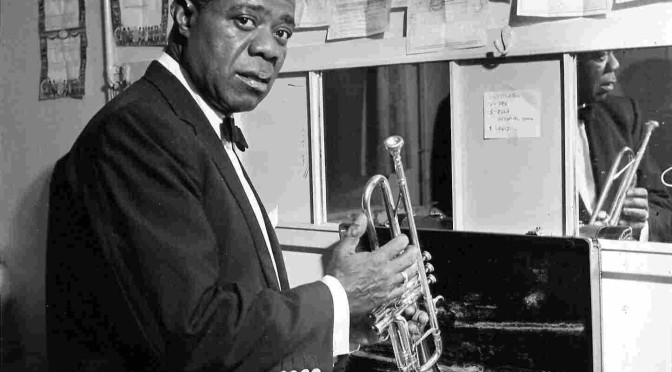**I was diagnosed with lowgrade follicular lymphoma at the beginning of March. You can read about my treatment and reflections here: CaringBridge – Caitlin Trussell
Caitlin Trussell with Augustana Lutheran Church on May 7, 2023
It’s been a minute since I’ve been in the pulpit. Quite a few minutes, actually, since Ash Wednesday. Hearing a good word from our preachers in the pews who are retired clergy including, by his own description, one “recycled Bishop,” has been personally comforting during this time of my treatment and the other kinds of pastoring that needs attention since Pastor Ann retired. Gratitude doesn’t begin to describe my feelings, but it will have to do for now. The preacher-of-the-week model will continue to engage our hearts and minds for a few yet but I’m so happy to be standing here today, in this way, at this time, with you.
Jesus said to his trouble-hearted disciples, “Do not let your hearts be troubled.” A couple sentences later, he reassures them that they “know the way” because he is “the way.” They know him. “The Way” is also code for what the earliest Christians used to call the church. The Gospel of John in its entirety helps us understand that Jesus as “the way” is not exclusive. We’re the ones that get that turned around with notions of in and out crowds. We forget that Jesus doesn’t belong to us. It’s the opposite. We belong to Jesus as does the world God so loves. The disciples are just as separated from God as the religious leaders that Jesus regularly challenges and so are we. In John’s Gospel we hear that Jesus was co-existent with God in the beginning and that Jesus is the light and life of all the people, of the entire world that God loves. Jesus slips on skin in solidarity with us to shine a light that cannot be overcome by any kind of darkness. The darkness did not, can not, never will, overcome it.
All that stuff that I just said is a 30,000 foot view of the Gospel of John. The high view is important because it holds us to an expansive interpretation of this reading. Our reading drops us into the meal and teaching that Jesus was sharing with his followers before he was killed on a cross. We often hear Jesus’ teaching about the many dwelling places in the Father’s house as a funeral reading. There are hymns and artwork aplenty that imagine this as a literal home. In John’s gospel, God is eternal. Abiding in the Father, in God, is abiding in the eternal one today, tomorrow, next week, and forever because that is who God is. God is the eternal one who is timeless – that’s a tricky concept for humans on a timeline.
Jesus said to his trouble-hearted followers, “Do not let your hearts be troubled…you know the way because I am the way and you know me.” His followers have seen him sit with strangers in the land who were ostracized, teach a religious leader – who opposed him by day – in the middle of the night, talk with a woman in the light of day who no one else would talk to. They experienced Jesus’ patient way in the middle of this reading today, coaching Thomas and Philip as they struggle to understand his teaching. The trouble-hearted followers will get into trouble by denying, betraying, and abandoning Jesus as he is executed for his ministry of radical inclusion, touching the untouchable and loving the unlovable. They will receive his radical love themselves after he is raised from the dead on the third day. They will know the way because they saw the way in Jesus – in his ministry, death, and resurrection.
Jesus said to his trouble-hearted followers, “Do not let your hearts be troubled…you know the way because I am the way and you know me.” You may have heard that we’re in a pastoral transition at Augustana. Senior Pastor Ann Hultquist retired in March. In the long, long, almost 150-year life of this congregation, a pastoral retirement is nothing new. But in each transition there’s a wide range of reactions. Some people are totally chill, others are anxious. Some people are grieving, others excited about the future. Some people are knee deep in transition details, others are not reading their weekly Epistles…you know who you are. 😉
Last week I had a chance to meet with our Bridge Pastor Gail Mundt who will join me in the pastoral ministry of the congregation. We got to know each other better. She was briefly at my family’s church which I was away at seminary in St. Paul. I brought her up to speed on Augustana’s last few of months – if that’s even possible. And we planned immediate logistics for her start with us on June 1st. Her expertise in congregational transitions and with congregations around the U.S. and abroad will be a gift that keeps on giving. It was good to pray with her and celebrate this new beginning even though Bridge Pastors by definition are temporary.
I also met with our Transition Consultant Pastor Dominic Palacious who will specifically lead the Transition Team in the work needed to be done before a pastoral call process may begin. He and I also planned a few logistics. He’ll join us on Sunday, May 21, for worship and in between services for Adult Forum. And he’ll be at our staff meeting this week and schedule 1:1 conversations with the staff. Having been through Augustana’s last search for a Senior Pastor, I’m curious to see how this new kind of transition process works for us.
Jesus said to his trouble-hearted followers, “Do not let your hearts be troubled…you know the way because I am the way and you know me.” In preparation for this sermon, I re-read several favorite papers and articles about the Gospel of John. One of them was my Christology paper from seminary. It’s not a favorite because I wrote it, although I do have a fondness for this one. It’s a favorite because my mother’s husband of almost 19 years, Larry, read it and wrote a bunch of comments in it – all capitalized in red in the body of the paper. He was a deeply faithful Christian and college professor and a good friend of mine. I can hear his voice in my head when I read his responses to my fledgling theological construction about what God is up to in Jesus. He had fatherly pride about my pastoring.
Larry died peacefully in memory care last week after a distressing struggle over the last few years. Larry’s questioning faith and curious mind meant that his confession about who Jesus was resisted easy answers or anything that smacked of certainty. He read more original works of early and current Christian thinkers than most of us combined. Larry’s immersion and prayer of the Psalms is an example for all of us. By the time he died, he could not rely on knowing Jesus in any coherent way. He could only rely on Jesus knowing him and bringing him to dwell in the eternal God who was already holding onto him throughout his life and in his declining health.
Jesus said to his trouble-hearted followers, “Do not let your hearts be troubled…you know the way because I am the way and you know me.” There’s much that mystifies us on our planet, in our communities, in our homes, and in our bodies. The mystery of suffering’s existence is unanswerable. Oh sure, we can hold people accountable for crimes against humanity and each other. We can hold ourselves accountable to the ways we hurt each other and ourselves. We can even say that the diseases in our bodies are similar to our behaviors that don’t always serve us or other people, our bodies behave in ways that don’t always serve us. And still, Jesus promises that we’re known by God no matter what is happening in our minds, bodies, and spirits.
Dear trouble-hearted ones, Jesus promises that our death dealing exclusive instincts are no match for the expansive love of God. This is an Easter promise that we can take with us on our way as Jesus’ way. Thanks be to God. And amen.


![If We Solved Racism… [OR Easter Faith in Holy Week Realities]](http://caitlintrussell.org/wp-content/uploads/2021/04/white-and-black-hands-672x372.jpg)
![One-Liners: Charlie, Jesus, and Misguided Disciples (with a dash of Desmond Tutu for good measure) [Luke 9:51-62, Galatians 5:1, 13-25]](http://caitlintrussell.org/wp-content/uploads/2019/06/Desmond-Tutu-Care-and-Anger-1-672x372.jpg)

![Pops, Purity, and Promise [I Promise It’s Not What You Think] Matthew 5:1-12 and 1 John 3:1-3](http://caitlintrussell.org/wp-content/uploads/2017/11/1726618-John-Green-Quote.Perfect.Flawed.Loving.sermon-Caitlin-Trussell-672x372.jpg)
![Eating Is A Radical Act [OR The Lord’s Prayer: Give Us This Day Our Daily Bread] Luke 12:22-34, Isaiah 58:6-11a, Psalm 107:1-9, 1 Corinthians 10:16-17](http://caitlintrussell.org/wp-content/uploads/2017/08/o-BABIES-EATING-facebook.sermon-caitlin-trussell-672x372.jpg)

![Loving Before Knowing [OR The Foolishness of the Cross] Matthew 5:1-12, 1 Corinthians 1:18-31](http://caitlintrussell.org/wp-content/uploads/2017/01/cross-equals-heart-sermon-Caitlin-Trussell-672x372.jpg)

